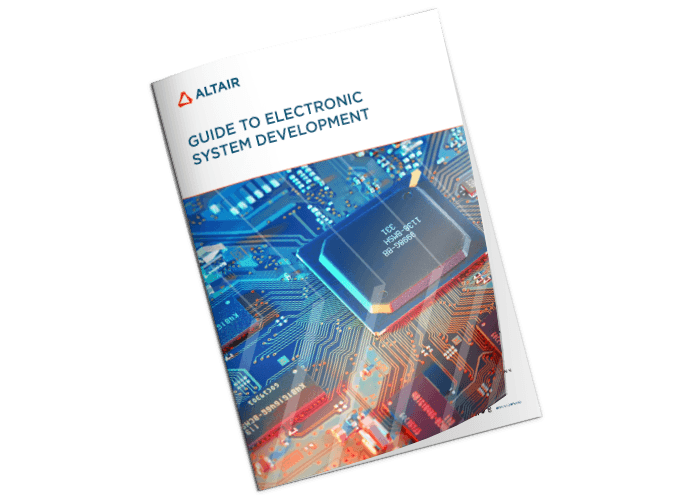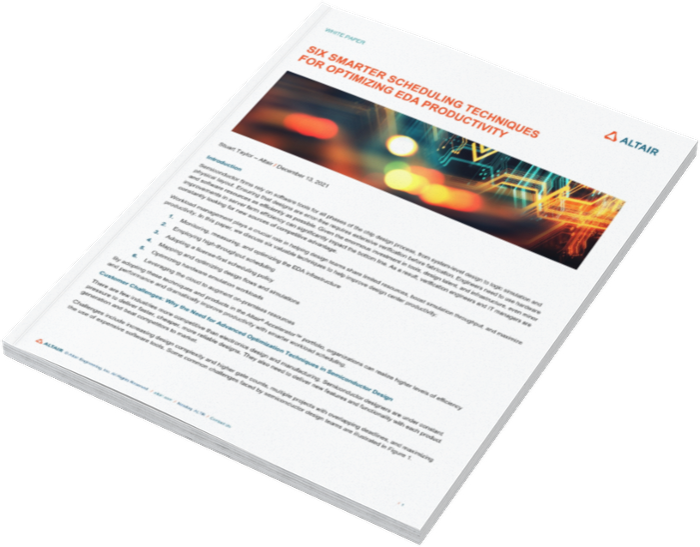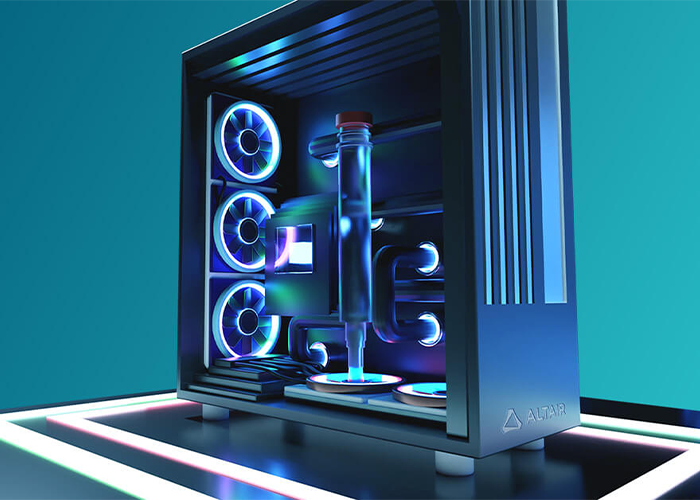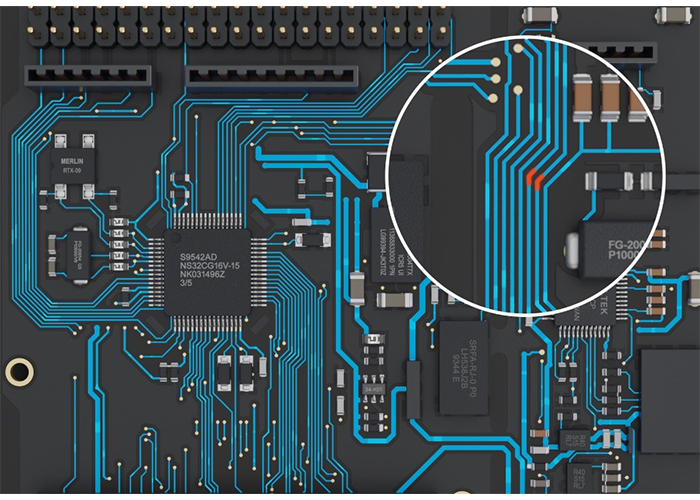
Shaping the Future of Semiconductor Design
Booth #1321 | July 10 – 12, 2023
Join us to learn more about Altair’s world-class solutions that are powering semiconductor design
The semiconductor design industry is constantly changing; accelerated time-to-market, industry requirements, technology, and more require trusted solutions that meet today’s demands and empower tomorrow’s successes. Join us to learn how Altair’s solutions are solving every challenge chip designers face – from complex electromagnetic simulations to managing high-throughput computing environments.
GIVEAWAY
Altair will select 3 lucky conference attendees to win gift cards equaling $250 to $500. Complete this form or register at our booth to enter to win.
Draw closes Friday, July 21, 2023. One entry per person.
ENTER NOW
11:00 am 11:20 am | Cost-aware Scheduling in Cloud using Altair® Accelerator™
Prasanna Chalgeri, Solution Architect
Cloud usage in EDA has grown in recent years. The elasticity of cloud and lower overhead of making the resources quickly available has acted as a catalyst for the growth. Altair’s Accelerator plus Navops takes this further by offering cloud bursting solutions which are vendor agnostic, cost-aware, license-aware and track utilization of cloud resources which saves cost and prevents vendor lock-in.
12:00 pm - 12:20 pm | Optimizing Chiplets & 3D IC Design with Altair Multiphysics Simulation
Sarmad Khemmoro, SVP, Product Strategy, Electronics Design & Simulation
Stacking multiple dies, 3D ICs offer enhanced functionality, reduced form factor, and improved interconnect density. However, these advancements come with several challenges, including thermal management issues.
Multiphysics suites from Altair assist designers in optimizing thermal management strategies and minimizing thermal stress-induced failures.
1:00 pm - 1:20 pm | Advanced Semiconductor Debugging Solutions
Gerhard Angst, Vice President - EDA and Industrial Solutions
Altair's Silicon Debugging Tools help to cut debug time with best-in-class visualization and advanced debug features. The tools offer a broad range of debug methodologies and support all important modelling languages. In modern SoC design, engineers need to work at different abstraction levels, for example, RTL, gate, transistor, analog, and parasitic. Altair's StarVision PRO tool supports all these abstraction levels and provides full analog debug, mixed with digital debug that leverages waveform, schematic and other displays.
2:00 pm - 2:20 pm | Solve Physical Design Challenges with FlowTracer
Dee Lin, Lead Principal Solution Architect
In the age of billion-transistor scale System-on-Chips and ASICs, the ever-increasing complexity in handling physical design flow is a major road block for silicon tape-out. This presentation aims to showcase how we leverage Altair FlowTracer platform to help top tech companies solve physical design challenges.
11:00 am - 11:20 am | Cost-aware Scheduling in Cloud using Altair® Accelerator™
Prasanna Chalgeri, Solution Architect
Cloud usage in EDA has grown in recent years. The elasticity of cloud and lower overhead of making the resources quickly available has acted as a catalyst for the growth. Altair’s Accelerator plus Navops takes this further by offering cloud bursting solutions which are vendor agnostic, cost-aware, license-aware and track utilization of cloud resources which saves cost and prevents vendor lock-in.
12:00 pm - 12:20 pm | Semiconductor Design Meets Data Analytics: Using ML to Reduce Component Downtime
LaRue Brown, Senior Director, Data Solutions
Semiconductor design and processing requires the use of various components. However, if any of those components fail, it can cause delays in production. This session will focus on using machine learning to predict the remaining useful life and to plan maintenance actions for an electrostatic chuck to reduce delays caused by component failure.
1:00 pm 1:20 pm | Fenice: Evolution of Workload Managers
Dr. Andrea Casotto, Chief Scientist
Fenice is a new workload manager that combines the best features of Altair PBS Professional, Altair Accelerator, and Altair Grid Engine It includes Accelerator's scalability, GPU scheduling from Altair Grid Engine, and PBS Professional's support for wide MPI jobs. Fenice was designed to handle queues of 20 million+ jobs.
2:00 pm - 2:20 pm | Altair® Hero™ – An Emulator-agnostic Approach of Scheduling Hardware Emulation Jobs
Prasanna Chalgeri, Solutions Architect
Scheduling jobs on emulators is very expensive due to the Tetris packaging problem and constraints. The presentation focuses on how Altair Hero, a scheduler which has been tailored for emulators helps improve the utilization by ensuring optimal placement of SA and In-circuit emulation jobs.
Book a meeting with our technical experts.
Book nowMeet Altair® HPCWorks™ for Semiconductor Design
Accelerate the design exploration and verification process with Altair enterprise computing solutions for semiconductor design. Engineering teams rely on Altair to beat competitors to market with our comprehensive and performant solution set on the market.
You need your environment to maximize resources and run faster than the competition. Trust the industry’s leading job scheduler to meet the complex demands of semiconductor design with scalability, adaptability, and efficiency.
Chip design is increasing in complexity every day and requires visualization tools to match. Flow visualization tools that provide analysis and troubleshooting capabilities will optimize compute resources for a faster, more effective design process at every step.
Licenses are a costly investment and often in high demand among chip designers on any given team. Managing these tools effectively can speed up time-to-market while achieving a better ROI. Monitor their usage and maximize license allocation through sharing for increased efficiency and real-time insight.
I/O profiling helps organizations determine the optimal compute environment for different types of ESD applications and resources. Monitoring applications increases visibility and enables informed planning, and application profiling can help solve deployment issues quickly.
Hardware emulators are an expensive component of the chip design process. Address all aspects of emulation flow including design compilation, emulator selection, and software and regression tests with a job scheduler designed for hardware emulators.
Additional Resources

Guide to Electronic System Development
As performance demands continually increase, packaging sizes become smaller, and device connectivity becomes more critical, schematic engineers and product designers need ways to make efficient design decisions and collaborate with one another to optimize complex interconnected mechanical and electromagnetic systems.
Read more
Leveraging Accelerator Scheduling for Emulation
Altair® Hero™ 2.0 is a queuing solution for specialized compute resources, notably emulators, FPGAs, and GPUs. It provides an abstract definition of hardware resources and allows multiple jobs and multiple resources to share a common queue.
Check it out
Six Smarter Scheduling Techniques for Optimizing EDA Productivity
Verification engineers and IT managers are constantly looking for new sources of competitive advantage. In this paper, we discuss six valuable techniques to help improve design center productivity.
Check it outComplete Electronic System Design Solution
Altair’s simulation-driven design tools enable your team of specialized engineers to collaborate across all aspects of electronic system design. Our products streamline your process, eliminate design iterations, and reduce time-to-market.
Offsetting the higher design and manufacturing costs associated with increasing chip complexity is possible with efficient design and debugging tools that can streamline and minimize design repetitions.
Dependable, tested solutions should offer quick visualization capabilities for spotting cause-and-effect patterns and provide rapid debugging solutions for varied system-on-chip designs.
These diverse designs can include analog components, third-party Intellectual Property (IP), multi-core processors, and chiplet-based designs that all require a versatile analysis and debugging solution for rapid design evaluation.
Debug tools support engineers and optimize designs, moving devices into production earlier and with a higher degree of confidence.
Developing electronic products to withstand the structural, operational, and environmental requirements associated with everyday use or misuse requires design solutions that reduce prototyping while balancing time and cost considerations. Altair's automated end-to-end ESD workflows enable multiphysics simulations that consider thermal, vibration, noise, and structural effects at the chip, PCB, and system levels. With access to ESD simulation tools in a single, collaborative development platform, ideal for both designers and engineering experts, teams can shorten development cycles while producing robust, reliable products.
Some form of power converter is present in nearly all modern electronics, from small cell phone chargers to multi-megawatt propulsion systems. As performance requirements become more demanding, circuit simulation plays a strategic role in the schematic capture phase of EDA workflows for competitive designs. Companies that an adopt industry-proven solution like PSIM to simulate power electronic systems can readily optimize energy efficiency and thermal management performance while evaluating component interaction and overall system responses based on operating conditions and environmental factors. And with efficient power electronic simulation workflows, companies can explore new architecture, materials, and control strategies for complex systems faster, helping to drive their next innovations.
Rapid modeling and visualization for electrical circuit systems is essential to gain rapid insights into circuit design and avoid costly design errors. Altair HyperSpice, with access to Spice libraries for fast AC, DC, and Transient simulations, is fully integrated into a flexible system-wide simulation solution, helping companies innovate faster.
Explore Further

Effective Techniques for Managing High Cost Software Licenses
Learn common techniques to reduce waste and more accurately target spend.
Watch Webinar
End-to-end Electronic System Design Toolset
From concept to manufacturing, our products streamline your process, eliminate design iterations, and reduce time-to-market.
Watch Video
The 7 Pillars of Electronic System Design
Discover the are seven key building blocks that make up the electronic system design process.
Read Now